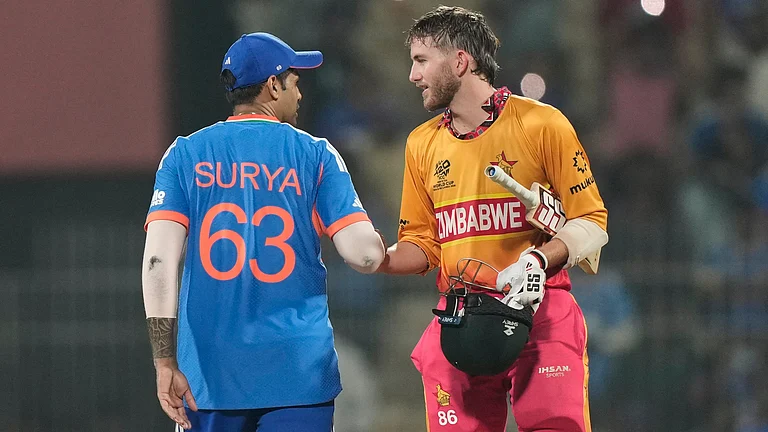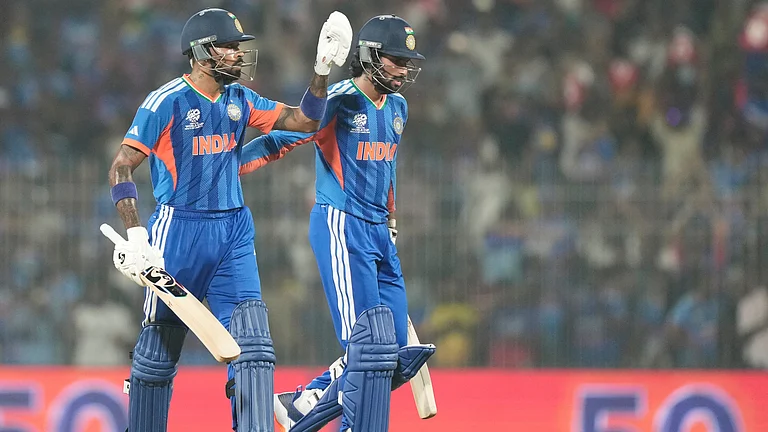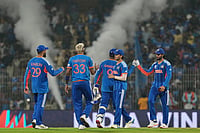NEW Delhi is feeling quietly satisfied that the first part of the composite first round of foreign secretary-level talks with Pakistan passed off without Islamabad pulling out of the second half of the talks, scheduled to be held in Delhi next month. So, judging from Pakistan TV, is Islamabad. Does this mean that the two countries have at last begun to look seriously for a meeting ground on the issues that divide them? A televised discussion of the talks on Pakistan TV that I was fortunate to catch last Wednesday evening suggests the exact opposite. The intelligentsia in Pakistan is indulging in wishful thinking and reading what they want to read into the talks. So, one suspects are a large number of Indians who have been traditionally dovish towards Pakistan. As a result, instead of bringing the two countries together, the talks are in imminent danger of driving them further apart.
The participants were a prominent Pakistani politician, a civil servant, probably from the foreign office, and a well-known journalist/TV anchorman who acted as the moderator. We believe Pakistan is at last taking the talks seriously as its economy is collapsing under the weight of sanctions. It therefore has no option in the long run but to set the Kashmir dispute to one side, accept New Delhi's offer to reduce the risk of a nuclear war, and normalise economic and cultural relations. The three participants believed the exact opposite: that it was the Indians who had begun to succumb to international pressure. Judging from their demeanour, Pakistan had nothing to worry about and had the upper hand. They believed New Delhi would not engage in meaningful talks on Kashmir, but would find some excuse to wriggle out because it knows that any substantive debate will expose the hollowness of its claim. However, they also believe that every time New Delhi does this, its case will weaken and pressure on it from the international community will mount.
We consider Pakistan's moral claim to Kashmir on the basis of religion untenable after the secession of Bangladesh, and the mushrooming sectarian violence between Sunnis, Shias, Ahmadiyas, Seraikis and other Muslim groups in Pakistan. The discussants had not the faintest qualm on this source and took it for granted that India's claim on the basis of its secularism and democracy has been completely exposed by the simple fact that after 50 years it had still to win the allegiance of the Kashmiris. Nothing could dent the armour of their belief that it was inconceivable for Muslims to want to live or even consent to live in a Hindu-dominated state. Doubtless Bangladesh was nothing more than an Indian conspiracy, and the sectarian violence is the doing of miscreants and RAW agents.
We believe the Shimla agreement laid the basis for a settlement of the dispute through the acceptance of the status quo in Kashmir and a commitment not to try to change it unilaterally. The Indian foreign secretary's pointed accusation that Pakistan had been grossly and intentionally violating the very first clause of the agreement for a decade did not receive a mention. On the contrary, they believed the agreement had confirmed that Kashmir was a disputed territory and obliged India to settle the dispute through talks. That is what India had been avoiding all these years because it knew it had no case in Kashmir. That the agreement had enabled Pakistan to recover 93,000 prisoners of war and several thousand square kilometres of captured territory was also forgotten. Apparently Pakistan had to make no concessions to obtain these.The purpose of treaties after wars is, after all, to reward the vanquished.
The same chasm in perceptions revealed itself on every other issue. What is going on in Kashmir today is not a proxy war but a struggle for liberation. There is no need to stop sending Afghan mercenaries and Pakistani servicemen and ex-servicemen, as none are being sent. It is the Kashmiris who are fighting to free themselves. Human rights violations are committed only by the Indian security forces.
MOST priceless of all was the anchorman's last observation: while the younger generation in Pakistan was keen to settle issues, leave the past behind and move resolutely forward, it was India that was unable to free itself from the shackles of the past—unable to reconcile itself to the fact that the Muslims did not want to live under Hindu rule, and determined to fight the battle against Partition all over again in Kashmir. This was being said about the people who created the Taliban and are the official hosts of the Harkat-ul-Ansar.
Listening to them, I was filled with a terrible sense of desolation. Granted that Pakistan TV carries even more sanitised opinions than DD, is there any possibility of coming to an agreement with people like these even in a hundred years? The first prerequisite of a negotiated solution is a willingness to make compromises. The visible sign of this in public debate is a willingness to see the other person's point of view. But the three speakers I heard were not even interested in dialogue. India has no case and Pakistan's case is impregnable. For 50 years Pakistan has done no wrong and India has done no right. 'Kashmiriyat', which might make Kashmiris reluctant to join Pakistan, is a figment of the Indian imagination. The leaders of the JKLF and Peoples' Democratic Front are paid Indian agents. The 53 per cent turnout in the 1996 elections and 44 per cent turnout in the 1998 parliamentary polls are frauds. Settlement of the Kashmir dispute means Pakistan takes all. Perhaps the time has come to tell Pakistanis bluntly, through the media, what India is willing to concede. Allowing Pakistanis to continue building castles in the air could turn out to be extremely dangerous in the long run.























